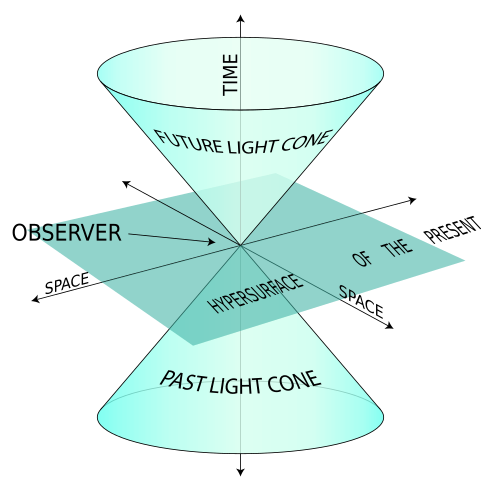Quantum Heraclitus:
No time. One moment immediatly follows the next with no interval between.
None. It is infinitesimal in duration. Accordignly, it cannot have a middle point. It is a quanta of time - there is no smaller.
C would be betwee A and B, so there would be one moment.
I would argue right off the bat that this is wrong: The point where there is no charge, either positive or negative, would be infinitely small. As such, one could indeed perfectly balance the iron rod of infinite smallness upon it, hypothetically speaking.
"Separating them with a zero" would be to not separate them at all. 1, 0, 2, 0, 3 is just extraneous.
"To say that nothing is between 1 and 2 is to say that there is no space between 1 and 2".
What makes 5 different from 4 and 6?
The very act of moving implies segmentation. Any movement can be subdivided ad infinitum. As such, it's basic, quanta/monad, must be infinitesimal.
To go back to the boiling kettles: You agreed, did you not, that one would boil quicker than the other. We said arbitrarily one would boil five minutes quicker than the other, correct? And these related to physical happenings: The water boiling. And you could ascribe a time to each, regardless of the fact that they took different times, yes?
I do not ascribe to the reality of anything less than 3 spatial dimensions. But theoretically speaking, yes.
The difference, however, would be that infinitesimally small planes could produce a substantial plane which is non-infinitesimal together. A zero-dimensional plane in the 3rd dimension (a two dimensional plane) could never do so.
One would be "1 + 1" the other would be "0 + 0".
I'll check the infinity one.
1] How much time is involved between moments?
No time. One moment immediatly follows the next with no interval between.
2] If the moments are sequencial and consecutive they must have a past and future and a middle [ start and end] how much time is it in the middle of your moment.
None. It is infinitesimal in duration. Accordignly, it cannot have a middle point. It is a quanta of time - there is no smaller.
3] say momeent A is in the past and moment B is in the future how much duration is in between moments [ now ]?
C would be betwee A and B, so there would be one moment.
Now remember our rod is infinitely thin yet it will not ever be able to find the lagrange point and entirely cease to be attracted to the magnet. Because the point is zero dimensional and our rod according to your hypothesis PJ has thickness of the smallest amount. Yet it must pass through the zero point to get to the other pole. No matter how small the measurement is, the zero point will never be found and yet it is definitely there as it has to be for the poles to be opposite. Unless science has found a way to prove otherwsie.
I would argue right off the bat that this is wrong: The point where there is no charge, either positive or negative, would be infinitely small. As such, one could indeed perfectly balance the iron rod of infinite smallness upon it, hypothetically speaking.
The same issue arises with your infinitely small moment of time as described in my previous post the moments muct be segmented by separating them with a zero other wise your smallest moment is no longer smallest.
"Separating them with a zero" would be to not separate them at all. 1, 0, 2, 0, 3 is just extraneous.
"To say that nothing is between 1 and 2 is to say that there is no space between 1 and 2".
And most importantly, if the segmental border is zero duration then what makes the segment a segment and not a continuum?
What makes 5 different from 4 and 6?
thus energy is constantly moving, thus time is never segmented into infintesimal parts.
The very act of moving implies segmentation. Any movement can be subdivided ad infinitum. As such, it's basic, quanta/monad, must be infinitesimal.
To go back to the boiling kettles: You agreed, did you not, that one would boil quicker than the other. We said arbitrarily one would boil five minutes quicker than the other, correct? And these related to physical happenings: The water boiling. And you could ascribe a time to each, regardless of the fact that they took different times, yes?
How many 2 dimensional planes can fit into a 12 inch brick?
Infinitey yes?
How many infintesimal thick planes can fit into a 12 inch brick?
Infinitey.......hmmmm something stinks.....
I do not ascribe to the reality of anything less than 3 spatial dimensions. But theoretically speaking, yes.
The difference, however, would be that infinitesimally small planes could produce a substantial plane which is non-infinitesimal together. A zero-dimensional plane in the 3rd dimension (a two dimensional plane) could never do so.
One would be "1 + 1" the other would be "0 + 0".
I'll check the infinity one.

